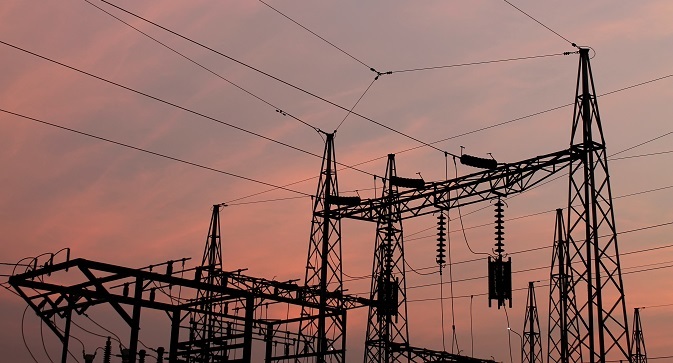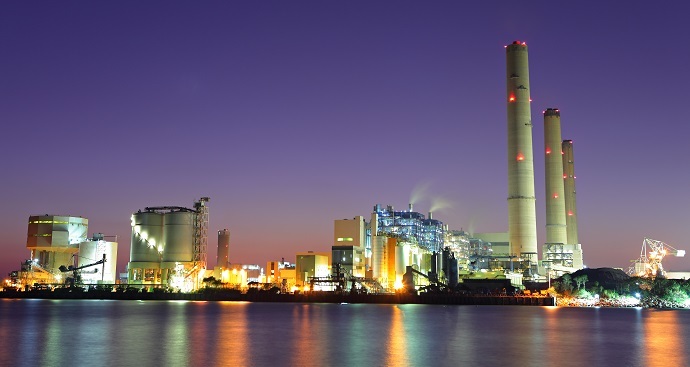
 Data Structure
Data Structure Networking
Networking RDBMS
RDBMS Operating System
Operating System Java
Java MS Excel
MS Excel iOS
iOS HTML
HTML CSS
CSS Android
Android Python
Python C Programming
C Programming C++
C++ C#
C# MongoDB
MongoDB MySQL
MySQL Javascript
Javascript PHP
PHPPhysics
Chemistry
Biology
Mathematics
English
Economics
Psychology
Social Studies
Fashion Studies
Legal Studies
- Selected Reading
- UPSC IAS Exams Notes
- Developer's Best Practices
- Questions and Answers
- Effective Resume Writing
- HR Interview Questions
- Computer Glossary
- Who is Who
What is the full form of EPRI?
Introduction
Electric Power Research Institute (EPRI) is a non-benefit association with central command in the U.S. that does innovative work relating to power creation, circulation, and utilisation.

Electric utilities, legislative associations, and organisations engaged with the energy business are among the individuals from EPRI, laid out in 1972 and upheld by its individuals. The foundation researches various subjects, like atomic power, energy proficiency, and environmentally friendly power.
The organisation offers solutions to ensure customers access safe, dependable, economical, and ecologically responsible power. Many significant technologies and procedures in the electric power industry have been developed by EPRI.
History and Evolution of EPRI
Electric Power Research Institute (EPRI) was established by several American electric companies that understood the need for coordinated research to solve shared issues in the power industry. Initially concentrating on nuclear power research, EPRI broadened its mandate to include other power generating, transmission, and distribution technologies.
Early on, EPRI studied issues such as nuclear technology development, environmental effect, and reactor safety. The organisation started concentrating on energy efficiency and renewable energy in the 1980s due to rising environmental sustainability concerns.
EPRI increased the scope of its research in the 1990s to cover topics including smart grid technology, distributed generation, and energy storage. Furthermore, the association began working intimately with different gatherings engaged with the power business, like legislative bodies, non-administrative associations, and instructive organisations.
To propel the best in class in power creation, transmission, and circulation, EPRI keeps on starting to lead the pack. Its research spans various subjects, including workforce development, cybersecurity, and grid modernization. Both in the United States and internationally, EPRI actively advocates the shift to a more robust and sustainable power grid.
Focus Areas of EPRI
Power age, conveyance, and utilisation are the primary areas of study at the Electric Power Research Institute (EPRI). The following emphasis areas can be used to generally classify the work of the organisation, which includes a wide variety of topics −
Generation
Nuclear, natural gas, coal, and renewable energy sources are just a few of the power production technologies that EPRI studies. Plant performance, dependability, safety, and environmental effect are some subjects it studies in this field.
Transmission and Distribution
EPRI's research in the transmission and distribution sectors aims to increase the energy grid's dependability, resilience, and effectiveness. This entails creating fresh grid innovations like energy storage and intelligent grid systems and tackling problems with grid modernization and cybersecurity.
End Use
With an emphasis on energy efficiency and demand-side management, EPRI researches how power is utilised in households, buildings, and industry. This involves creating techniques and technologies to conserve energy and enhance the performance of electrical appliances and other equipment.
Environment
EPRI's research in this field is geared toward reducing the negative effects of electricity production and usage on the environment. This involves creating solutions to environmental problems like managing water supplies and minimising greenhouse gas emissions.
Operations and Maintenance
With an emphasis on performance optimization and cost containment, EPRI undertakes research on enhancing the operation and care of power plants and the electrical grid. Increasing the safety and security of the electricity system is the main goal of EPRI's research in this field, including tackling problems with cybersecurity, physical security, and disaster preparation.
Collaboration and Partnerships of EPRI
The Electric Power Research Institute's (EPRI) performance depends on partnerships and cooperation. To propel the cutting edge in power age, conveyance, and utilisation, the association collaborates with various partners, including utilities, legislative bodies, non-legislative associations, scholarly establishments, and colleagues.
EPRI engages in various partnerships and collaborations, such as cooperative research, information exchange, technical support, and training initiatives. Key partners and collaborators of EPRI include:
Utilities
To solve common issues in the power industry, EPRI collaborates extensively with electric utilities in the United States and other countries. This includes working together on research initiatives, exchanging best practices, and offering technical support and training.

Government organisations
To solve energy and environmental concerns, EPRI works with government organisations at the municipal, state, and federal levels. This includes helping associations like the National Renewable Energy Laboratory, the Environmental Protection Agency, and the U.S. Division of Energy.
Non-governmental organisations
To address social and environmental issues associated with energy, EPRI collaborates with NGOs. This incorporates working with NGOs like the Natural Resources Defence Council and the World Wildlife Fund.
Academic institutions
To improve the state of the art in electricity generation, delivery, and usage, EPRI works with academic institutions. This involves collaborating with academic institutions and research centres to conduct collaborative research projects and offer training initiatives.
Industry partners:
To create and market innovative technologies for the electrical business, EPRI collaborates with industry partners. Collaborations with organisations like General Electric, Siemens, and ABB are part of this.
Conclusion
Power age, conveyance, and use-related innovative work are being done by the Electric Power Research Institute (EPRI), a charitable association. To settle shared issues in the electrical area and advance a heartier and reasonable power framework, EPRI works in organisations with utilities, legislative associations, non-administrative associations (NGOs), educational establishments, and colleagues.
FAQs
Q1. What is the purpose of EPRI?
EPRI aims to make a stronger and more feasible electrical framework while propelling the cutting edge in power creation, dispersion, and utilisation.
Q2. How is the EPRI financed?
Membership dues from utilities and other businesses involved in the electrical industry, as well as grants and contracts from other businesses and governmental bodies operate EPRI.
Q3. What major accomplishments has EPRI made?
EPRI has made several significant contributions to the electrical industry, including creating solutions to lower greenhouse gas emissions, enhancing the effectiveness and dependability of electricity production and transmission, and encouraging renewable energy sources.

